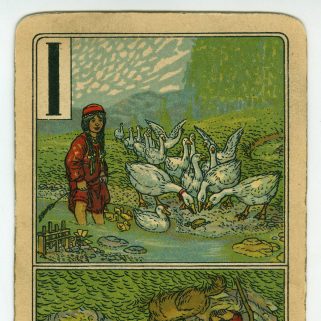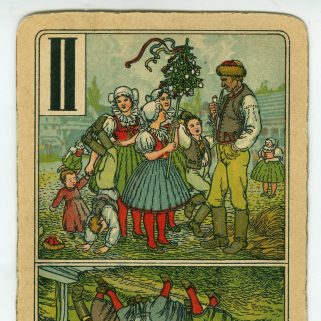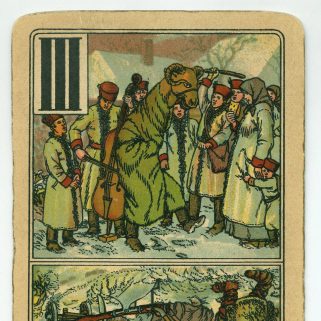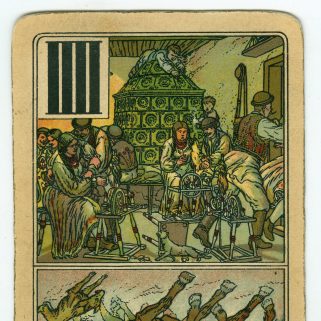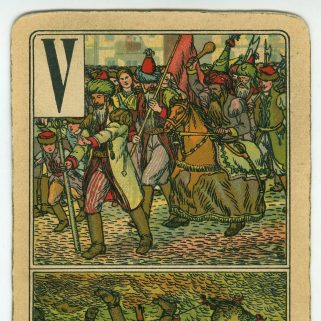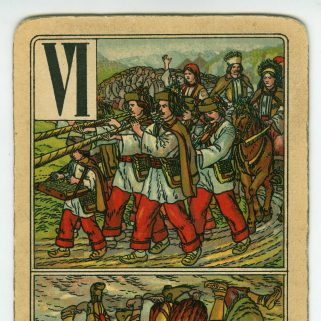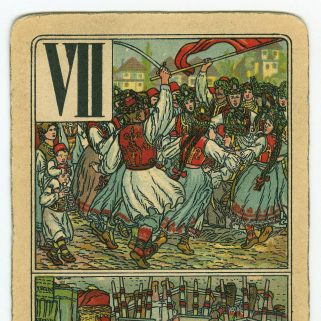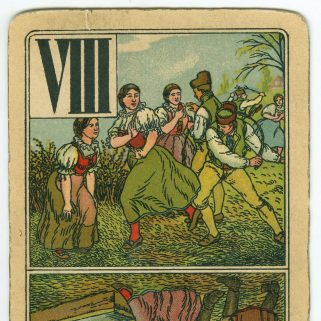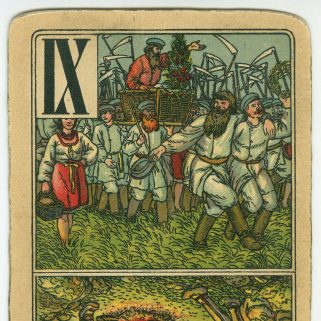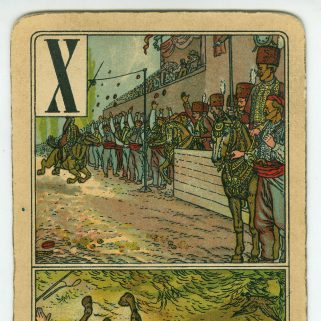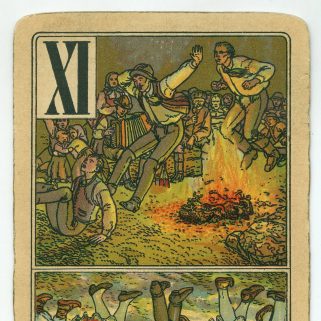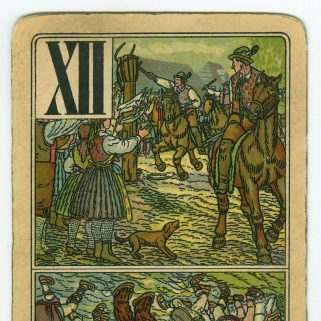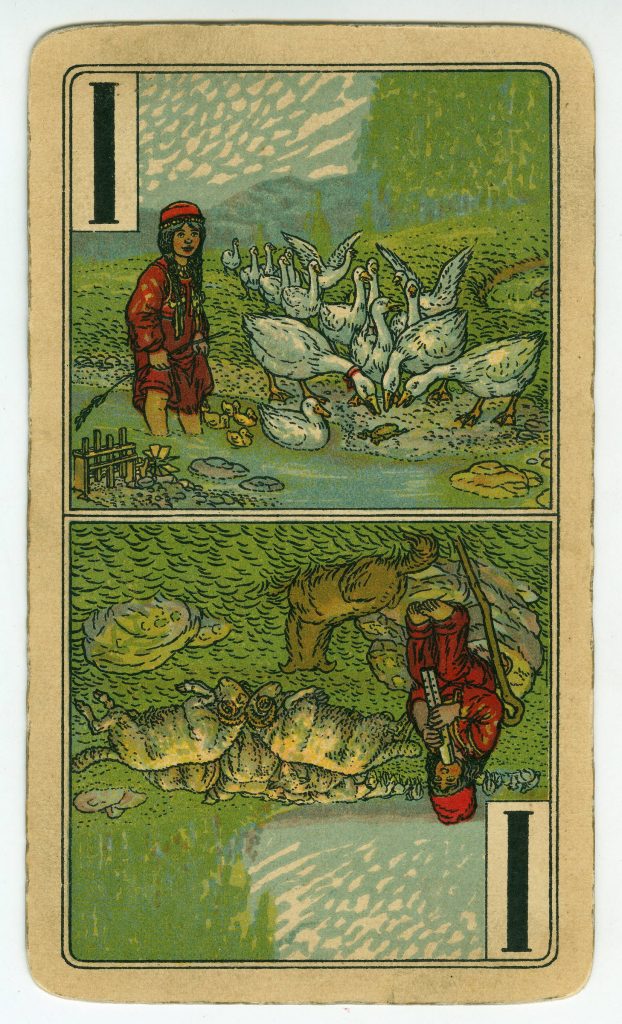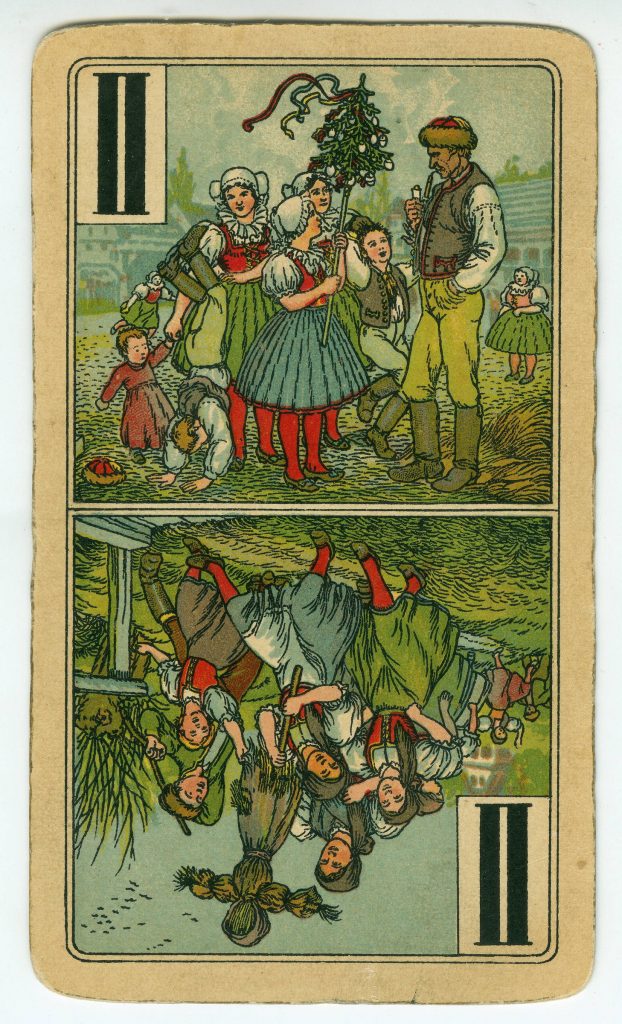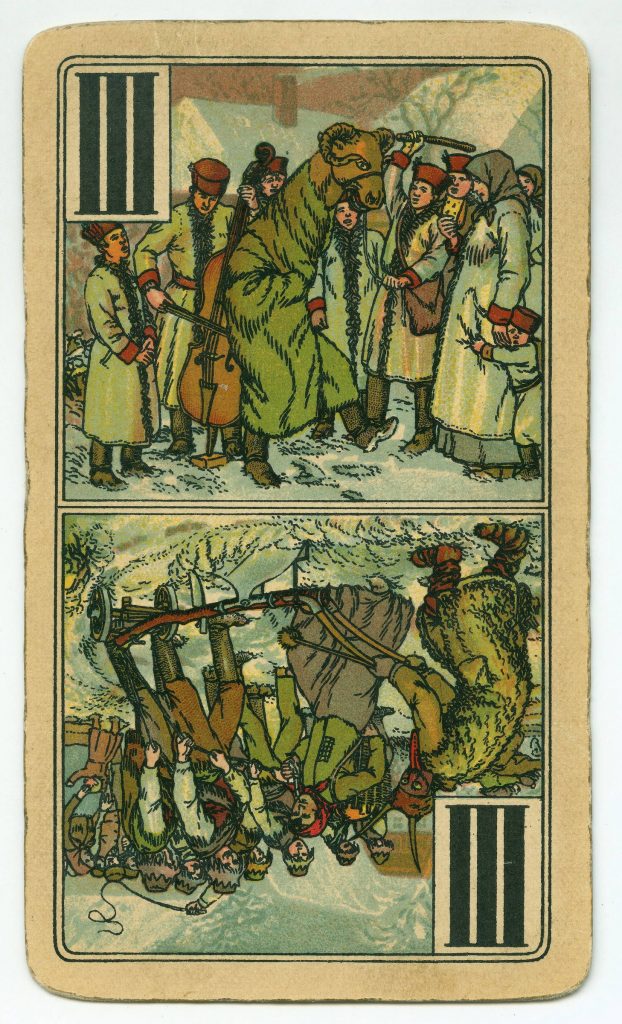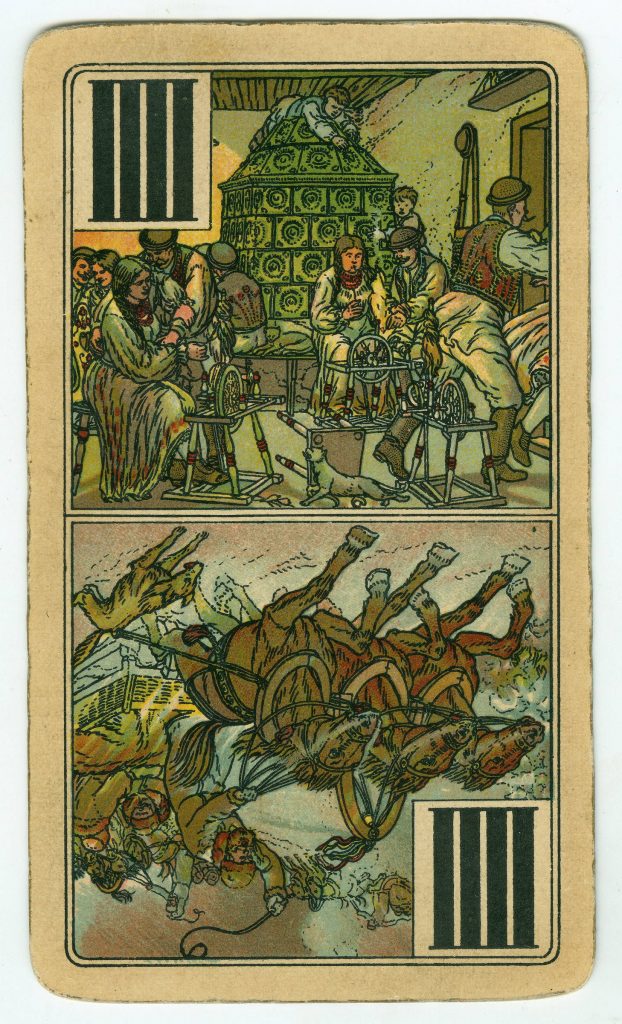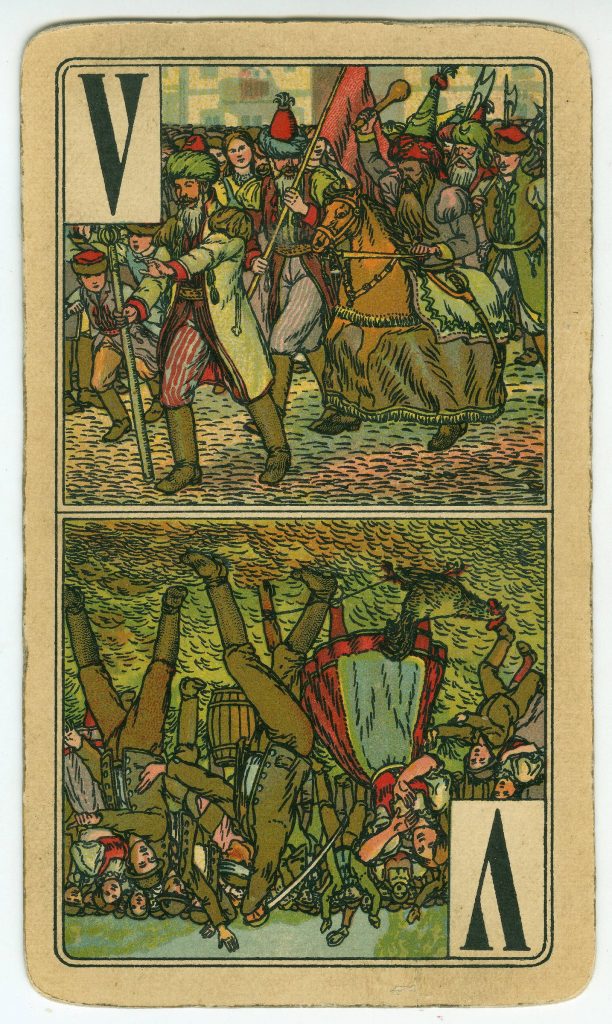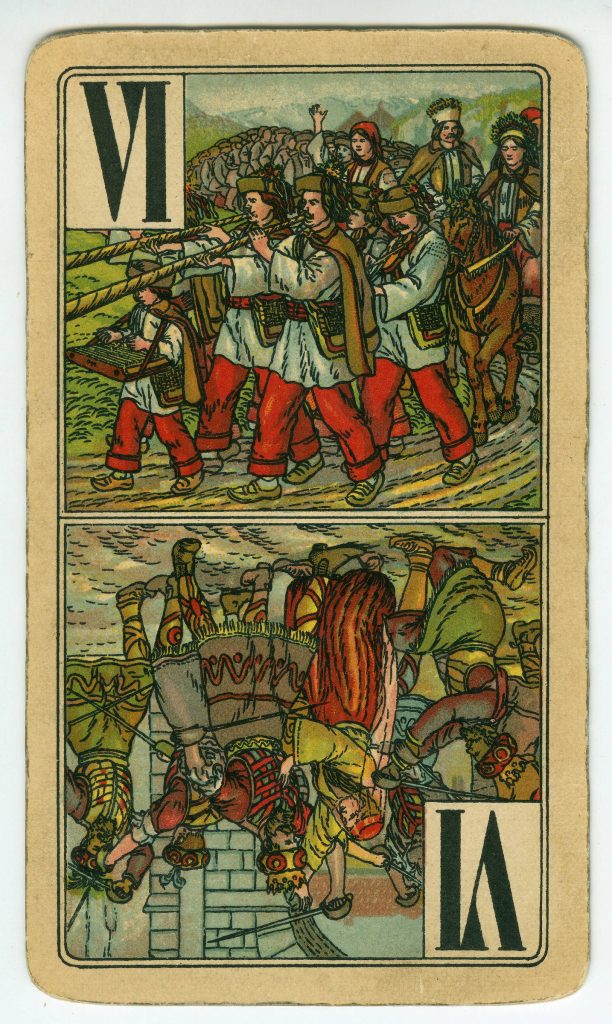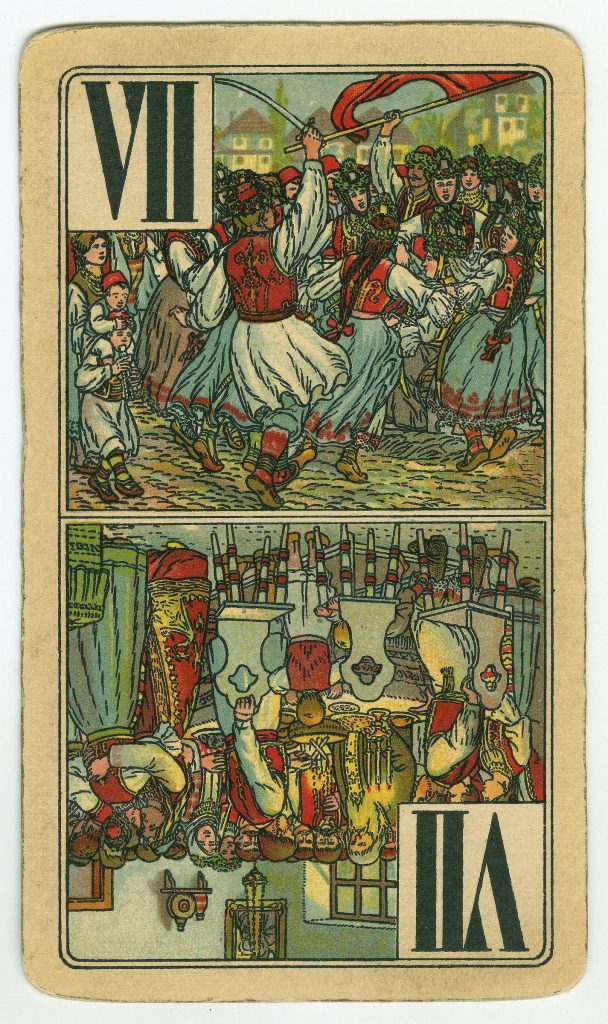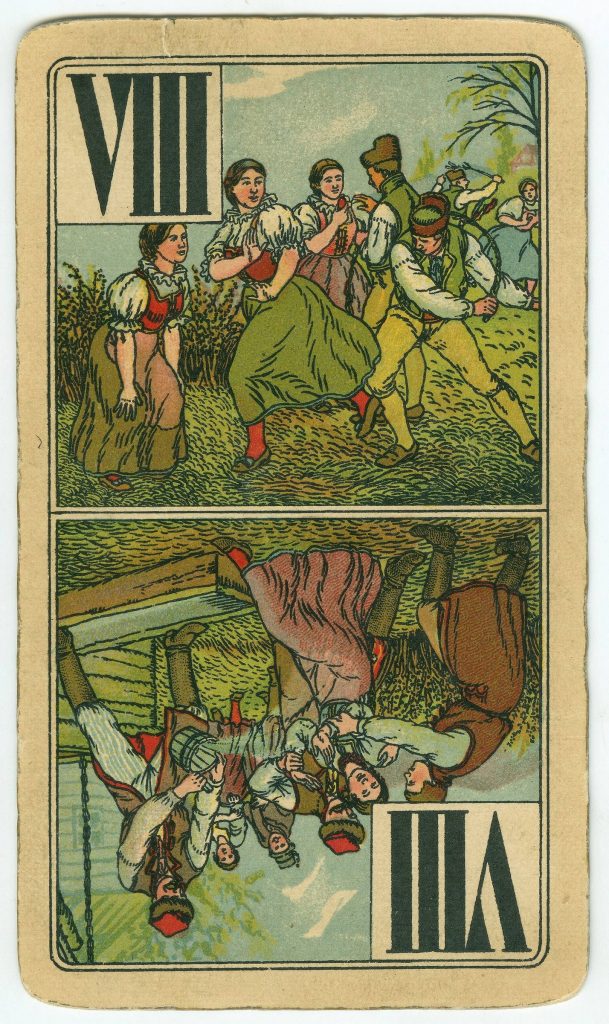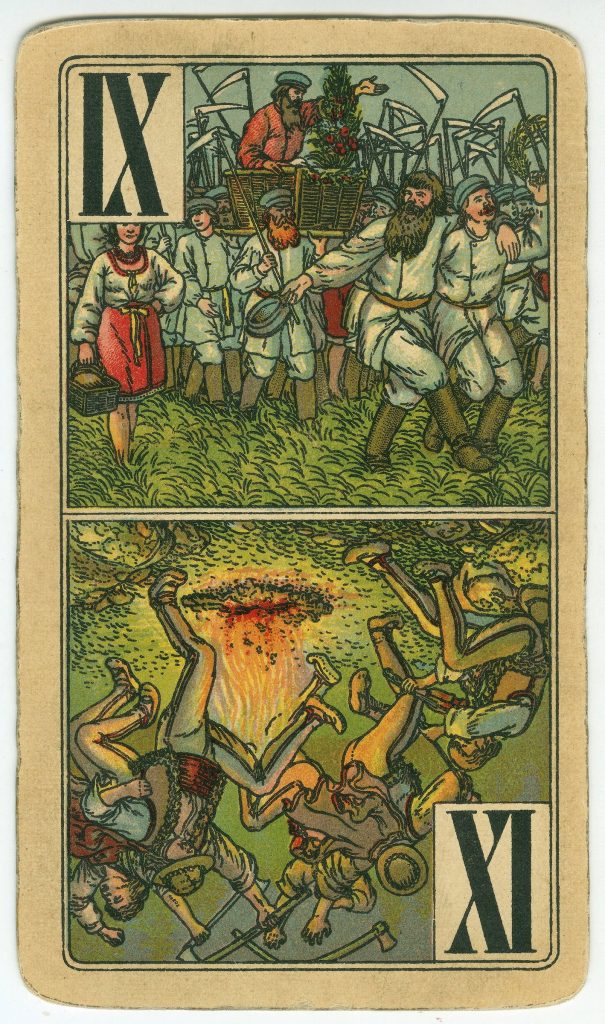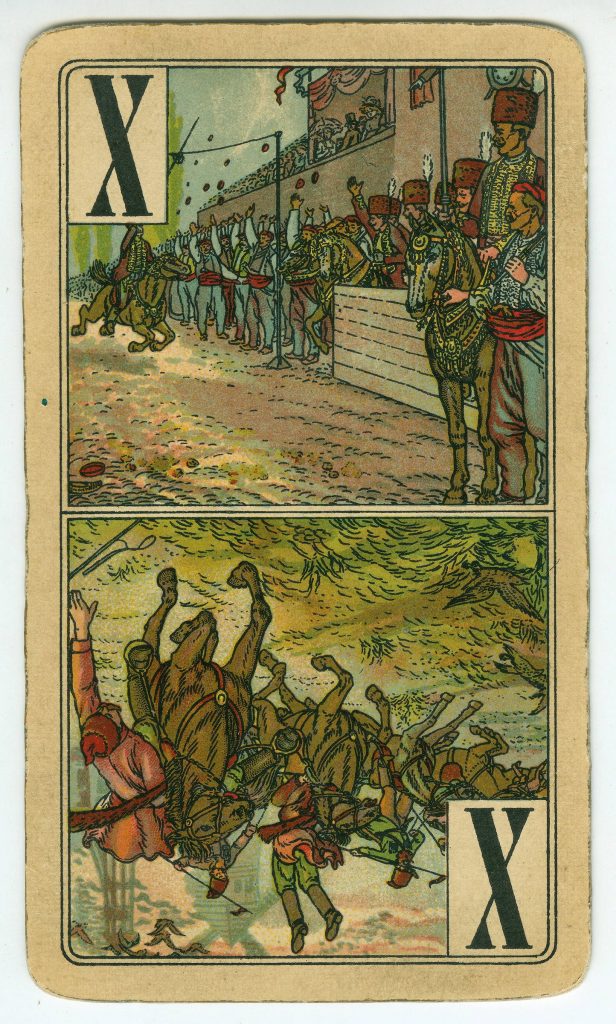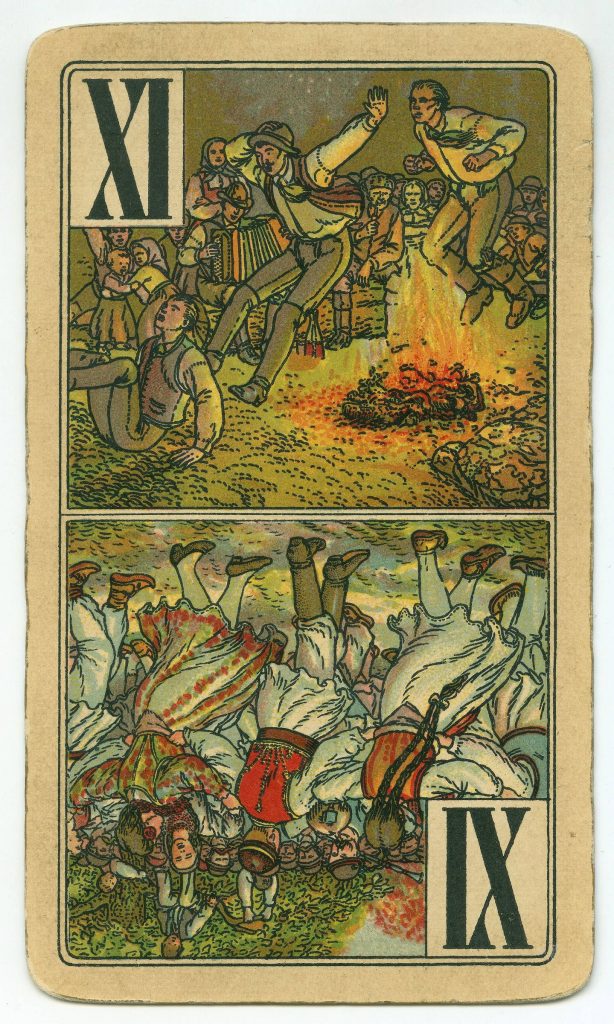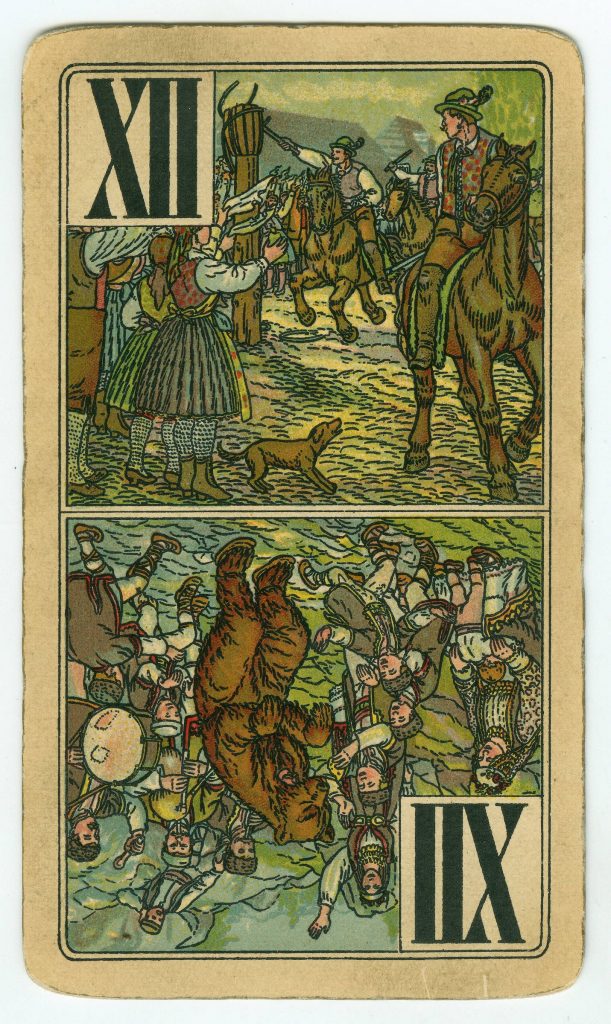Smrekar received a commission for playing cards from the First Slavic Playing Cards Factory in Ljubljana. The factory’s intention was to evoke through them memories of life and history of the Slavic peoples among the Slavic patriots.
Imperial-Royal police authorities in Ljubljana prohibited the distribution of the cards with a decree in 1916, citing a risk to public order. The demand for the ban came from the command of the “Fifth Army” that defended Austrian borders on the Isonzo Front under the leadership of General Svetozar Borojević. The cards were apparently found with Slovenian and Slavic soldiers on the front and the army was worried they would threaten the military discipline and patriotic zeal.
Smrekar depicted various ethnographic motifs of different Slavic nations on the cards and paid close attention to national costumes of different peoples. He found inspiration in illustrations of the encyclopaedia Die österreichisch-ungarische Monarchie in Wort und Bild (The Austro-Hungarian Monarchy in Word and Picture), alongside reproductions of pictures by Slavic painters.

Slavic Tarock
